Meet the Recovery and Reform Team
Contact us today! Email: recoveryreform@innovatingjustice.org
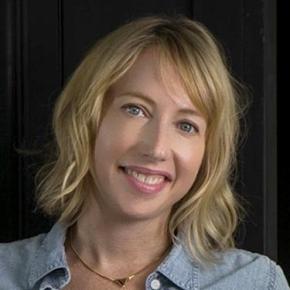
Sarah Blanco, LCSW, is a Senior Program Manager on the Recovery and Reform team at the Center for Justice Innovation. In this role, she provides training and technical assistance nationally and internationally to criminal, therapeutic, and community courts and multi-disciplinary teams with a focus on trauma-informed and person-centered practices, harm reduction, and mental health. Previously, Sarah was the Clinical Director at Midtown Community Justice Center, a court project of the Center for Justice Innovation. She oversaw Alternative to Incarceration and community based-programming and clinical services, including harm reduction initiatives and Midtown’s Emerging Adult and Mental Health Courts. Prior to working at the Center, Sarah was the Associate Executive Director at a NYC based-reentry organization. Over the course of her career, she has served a broad range of individuals, families, and groups, including justice-involved individuals living with serious mental illness and co-occurring disorders. She received her Master’s Degree in Social Work from University of California, Berkeley.
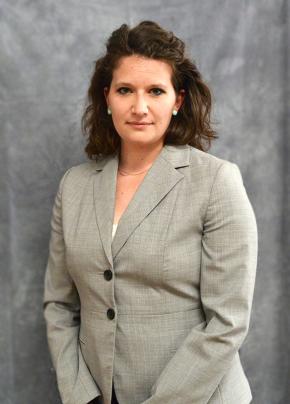
Monica Christofferson, J.D. is a Senior Director for the Office of National Initiatives at the Center for Justice Innovation. In this role she oversees the Recovery and Reform portfolio and provides specialized assistance to states around the country on implementation and enhancement of treatment courts, diversion programs, systems change, and legal reforms. Ms. Christofferson has provided TTA nationally and internationally focused on alternatives to incarceration, problem-solving court programs, and person-centered practices in the court-based programs. Prior to her work at the Center, Ms. Christofferson developed, implemented, and directed the specialized domestic violence docket in Cuyahoga County Domestic Relations Court. Ms. Christofferson has also worked as a crisis intervention specialist and independent living program manager. Ms. Christofferson received her B.A. in Political Science from John Carroll University and J.D. from Catholic University of American, Columbus School of Law.
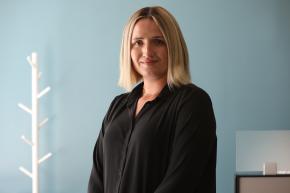
Taylor DeClerck, LMSW, is a Program Manager for the Center for Justice Innovation’s National Training and Technical Assistance department. She assists in leading and delivering specialized support to multidisciplinary criminal legal stakeholders and statewide agencies. Before joining the Center, Taylor worked as a technical assistance provider to college-in-prison programs across New York State Department of Corrections and Community Supervision correctional facilities. She acted as a resource on promising practices developed by college-in-prison programs from different parts of the state and nation through research, writing, and the development of resources and presentations shared with college and corrections partners. Taylor has direct experience providing case management, advocacy, and assistance to persons returning home from correctional facilities. Taylor received her B.S. in Psychology and Criminal Justice from the State University of New York College at Oneonta, and her MSW in Leadership and Macro Practice from Fordham University.

Kelly Van Develde is an Associate Director for Recovery and Reform at the Center for Justice Innovation. Kelly is a seasoned legal professional with extensive expertise in problem-solving justice and alternative approaches to incarceration. Kelly provides expert assistance to jurisdictions nationwide, and advises attorneys, judges, and other practitioners on issues relevant to drug courts, court-based opioid intervention programs, and other forms of problem-solving justice. In this role, she leads and delivers a wide range of onsite and remote technical assistance projects including treatment court evaluations and strategic planning, opioid court implementation, statewide strategic plans, and training. Prior to joining the Center Kelly was an Assistant District Attorney in the Bronx District Attorney’s Office, where she was a member of the Alternative to Incarceration Bureau working with several problem-solving courts. Kelly is a graduate of Wellesley College and Brooklyn Law School.
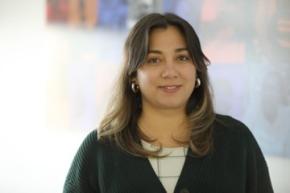
Alejandra Garcia is an associate director for the Center for Justice Innovation’s National Technical Assistance department, leading and delivering a wide range of onsite and remote technical assistance projects including drug treatment court evaluations, opioid court implementation, statewide strategic plans, and training events. Previously, she worked for the Center’s Training Institute where she co-created and implemented the strategic plan for its inaugural year, as well as collaborating with departments across the Center to develop original training content. She previously interned with the New York Legal Assistance Group’s Legal Health department, and has worked in a variety of roles in the area of youth development. She received her MSW from the Silver School of Social Work at NYU, and her B.A. in sociology and psychology from Columbia University.
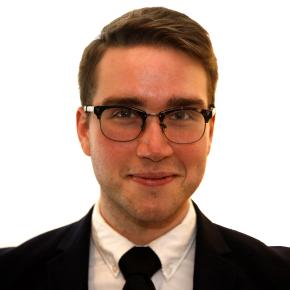
Spencer Geiger is a Program Manager for the Treatment Courts team where he provides training, operational assistance, and strategic planning to jurisdictions around the country looking to implement and enhance treatment courts. Prior to this role, Mr. Geiger worked at the Center’s Brooklyn Justice Initiatives, based in the Kings County Criminal Court and Supreme Court, partnering with prosecutors and defense attorneys to facilitate connections both to pretrial supervised release and to programming as an alternative to incarceration. He also worked at the Center’s Training Institute, where he advanced learning and development initiatives to support the organization’s growing staff. While working nationally, he maintains a strong connection to his community by volunteering regularly throughout Brooklyn, his home since 2016. Mr. Geiger holds a B.A. in International Studies from Old Dominion University and is a current J.D. candidate at Syracuse University’s College of Law.
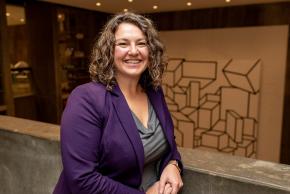
Colleen Gibbons is a senior program manager on the Center for Justice Innovation’s Recovery and Reform team, working with jurisdictions across the country on a wide range of criminal legal issues. Through the Center’s ongoing projects, Colleen provides training and technical assistance to Veterans Treatment Courts, Adult Drug Courts, and Opioid Intervention Courts. Colleen completed her J.D. at the Syracuse University College of Law, where she specialized in Disability Law and Public Policy. She received her M.S. and Ph.D. in Human and Community Development at the University of Illinois at Urbana-Champaign, and her B.S. in Exceptional Education at Buffalo State University.
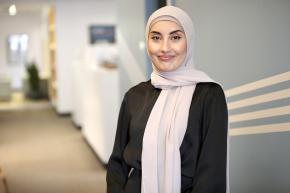
Akdana Kamal is a Senior Program Associate for the Center of Justice Innovation’s Recovery and Reform Team. Akdana has previously worked at the Center’s Court Operations team, particularly the Queens Community Justice Center and focused primarily on advancing the Alternatives to Incarceration program at the Queens Criminal Court. She received her M.S. in International Crimes, Conflict and Criminology from Vrije Universiteit Amsterdam and her B.A. in International Criminal Justice from John Jay College of Criminal Justice.

Sheila E. McCarthy, LMSW, is a Senior Program Manager for the Recovery and Reform Team at the Center for Justice Innovation (Center). Sheila has led a wide range of projects focusing on drug/opioid courts, teleservices initiatives, veterans treatment courts and statewide strategic plans. Prior to joining the Center, Ms. McCarthy worked for the New York State Unified Court System for over a decade in several capacities within family court. Her career in the court system began as a coordinator for a program aimed at increasing accountability in intimate partner violence cases in Queens Family Court. She then transitioned to a Citywide position with the Child Welfare Court Improvement Project, a federally funded initiative that supports the family court’s mandate to promote the safety, permanence, and well-being of abused and neglected children. Her last position before joining the Center was focused on a statewide initiative aimed at improving families involved in the child welfare system, family court, and dealing with substance use disorders. In addition to her macro level work, Sheila has experience directly serving clients ranging from victims of sexual assault and intimate partner violence, to assisting criminal justice involved individuals with cooccurring disorders. She holds a B.A. in Sociology from Boston College and a M.S.W. from Columbia University School of Social Work.

Karen Otis, deputy director with the Center’s department of recovery and reform team, delivers targeted assistance to state and local jurisdictions with fidelity to best practices in the areas of adult drug courts, family drug courts, veterans treatment courts, mental health courts, and more. Karen also designs and delivers in-person and remote trainings via webinar and videoconference. Karen is a licensed mental health counselor, with over a decade of experience in family treatment court. She holds a masters’ degree in forensic psychology from John Jay College of Criminal Justice and a master’s degree in mental health counseling from the City College of New York.
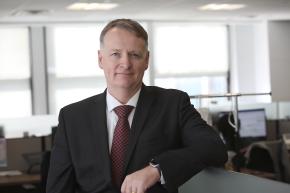
Shawn Rogers, M.P.P., is a Senior Program Manager on the Recovery and Reform Team at the Center for Justice Innovation. In this role he provides state level training and technical assistance on best practices, guidance on implementation and enhancements, and program support to criminal legal practitioners and agencies. Prior to joining the Center, Shawn led several COVID-related projects at the Addiction Policy Forum, including a project that partnered with the Centers for Disease Control and the National Institute on Drug Abuse to address vaccine hesitancy among individuals with substance use disorders (SUDs) and their caregivers, and a project that partnered with states departments of corrections, local community corrections agencies, and drug courts to provide digital therapeutic services to SUD-impacted individuals. Before joining the Addiction Policy Forum, Shawn spent over a decade at the Council of State Governments Justice Center where he delivered technical assistance to federal grantees working on reentry. Shawn holds a B.A. from Kansas State University and an M.P.P from the University of Denver.
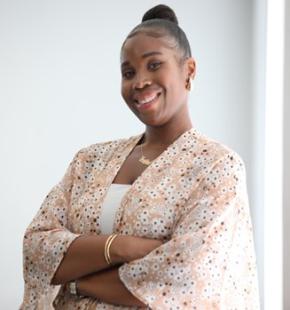
Courtney Williams, M.S., is a Senior Program Manager within the Technical Assistance Department, at the Center for Justice Innovation. As a member of the Recovery and Reform Team she provides state-level expert assistance, delivering best practices guidance, and spearheading program support initiatives for specialty courts nationwide. Prior to her tenure at the Center, Ms. Williams held the position of Strategic Planner at the New York City Criminal Justice Agency. In this role, she showcased her strategic acumen, overseeing the comprehensive development, implementation, and review of programs and policies within the Supervised Release program. Ms. Williams' holds a Bachelor of Arts in Political Science from Rutgers, The State University of New Jersey, and a Master of Science in Public and Urban Policy Analysis from The New School. Her academic pursuits have equipped her with a robust theoretical foundation, complemented by real-world experience, making her a dynamic force in shaping progressive policies and fostering equitable practices within the criminal justice realm.

Jarred Williams is a Senior Research Associate at the Center for Court Innovation and conducts research on drug courts across the country, as well as developing innovative projects to provide opportunities for formerly incarcerated people. Prior to joining the Center, Jarred held several senior level research positions at nonprofit organizations, and was a Soros Justice Advocacy Fellow with Open Society Foundations. His portfolio of work includes both qualitative and quantitative analyses with a focus on community-level research. With more than 10 years of experience conducting criminal justice and policy research, his passion derives from his personal relationship with the criminal justice system. At age 19, he was incarcerated for nonviolent felonies and this experience taught him the devastating consequences associated with mass incarceration. He has since dedicated his life to bringing about an equitable criminal justice system. Jarred holds a master’s degree from the Department of Sociology at Washington State University.

